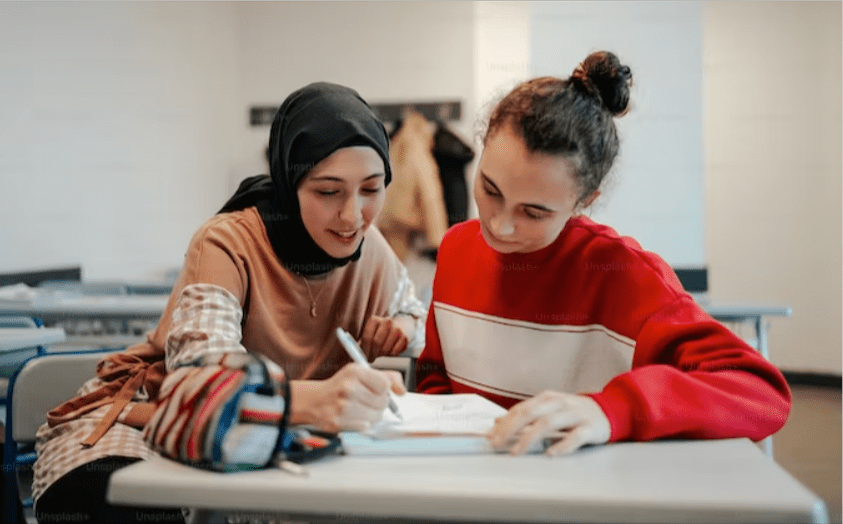
10 Important Skills of a Teacher and How To Develop Them
Teachers should have a wide range of skills to provide their students with engaging and effective learning opportunities. Professional development for teachers is an ever-learning process that is essential for enhancing the quality of education. You will need to sharpen both your hard and soft skills in the modern education landscape. So, make sure you have a strong grasp of most of the key teaching skills if you are hoping to get into the teaching profession. Most of these teaching skills can come in handy no matter what sort of teaching profession you get into. You can be an elementary school teacher, camp counselor, or a university professional; learning teachers’ skills are vital. Read on to find 10 important skills as a teacher you must possess.
Effective classroom management to improve student engagement
Effective classroom management is essential for creating a positive and productive learning environment. Teachers should maintain a consistent lesson plan to encourage student engagement and maintain a well-structured classroom. It is a key way of professional development for teachers. You can seek mentorship and take a classroom management course to get valuable insights into handling classroom challenges. Moreover, teachers can enhance their classroom management skills by observing experienced teachers.
Developing communication skills to participate actively in classroom and board meeting
Maintaining effective communication is a key element of professional development for teachers. It is essential for a teacher to have the ability to convey information to students and parents. Sending an email for communication is easier and quick. But sometimes, you can handle a situation much better by setting a meeting or making a call. Teachers can improve their communication skills by active listening, attending public speaking courses, and using technology to engage students effectively.
Bring creativity to teaching techniques for effective learning
Creative teachers can engage students and make learning enjoyable. There are many ways to do it, which may require a collaborative approach from the educational institution. Teachers can encourage experimentation as they try new teacher methods or use teaching materials that make students curious. Moreover, it can encourage students to think more creatively.
Understanding pedagogical strategies
Improving pedagogical knowledge involves having a strong understanding of effective teaching methods and strategies. Teachers can attend workshops and conferences to develop their skills. You can also collaborate with colleagues and get an advanced education degree to have a thorough understanding. These efforts can provide you with innovative teaching techniques, refining teaching methods that deepen your education understanding.
Develop problem-solving skills
It is the teacher’s responsibility to manage any conflict or disagreement in a classroom. Hence, developing problem-solving skills is essential as, most often, teachers need to deal with teenagers or higher educational authorities. It requires you to develop behavior management skills through teacher training, workshops, or volunteering opportunities. Make sure to be aware of one’s actions while practicing problem-solving skills before taking necessary action. Reflect on how you reacted in a situation and consider how you can do better next time.
Learn how to manage time for all your teachers’ responsibilities
Teachers wear a lot of hats while offering quality education to students, which comes with many responsibilities. Hence, effective time management is crucial for teachers’ overall professional growth. Start with prioritizing tasks and set clear boundaries between work and personal life. Take time management courses to optimize time and avoid stress.
Build adaptability skills for the evolving education trends
Teachers must adapt to the ever-evolving education landscape by embracing change in the modern education era. So, you must stay updated by reading educational literature and attending professional development sessions. Make sure to learn tech-savvy approaches to offer effective education that can be helpful in career advancement.
Practicing patience in the classroom
Teachers often deal with diverse student needs, which require a lot of patience. They can practice patience through mindfulness techniques and reflection on teaching experiences. You can contact your experienced colleagues or therapists to improve your patience skills. These methods help manage stress to improve patience, which fosters a more supportive environment for students.
Improve technical skills to actively manage your tasks
Many modern classrooms are adapting digital strategies to make education more inclusive. Hence, teachers need to have technical skills to promptly go through their tasks without hampering education quality. You should receive training for managing your technical tasks, like providing students with individual counseling and consistent exam grading. Make sure to possess comprehensive curriculum knowledge so students don’t keep you have no understanding of teaching materials.
Build strong teamwork abilities
Leadership quality and teamwork quality help teachers interact effectively with both students and institution personnel. Get into training sessions to improve skills for being open-minded, mature in handling differences, and understanding hierarchies.
Final Thoughts:
Your CV and cover letter are only the beginning of presenting your teaching abilities. It requires you to continue proving your teaching skills when you receive an interview invitation. Many studies have reflected that a teacher’s self-improvement in giving education is what heavily influences the student’s success. Therefore, you should refine those essential teaching skills for professional development and become competent to advance in your career.



